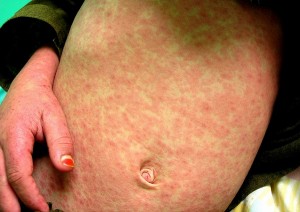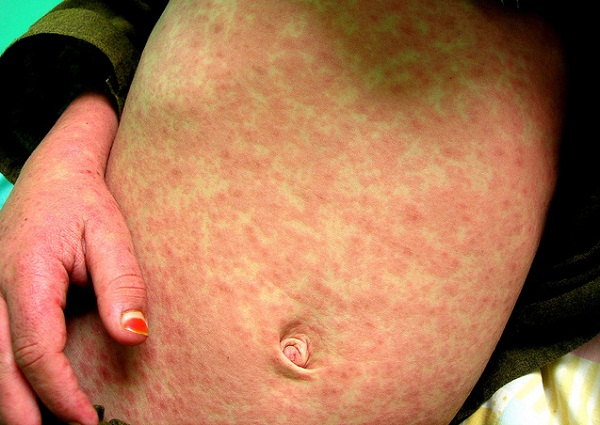
Over a quarter of all cases of measles in England and Wales last year were recorded in the Merseyside area – conciding with an 18-year high of measles cases nationally.
2012 saw 2,016 confirmed laboratory cases of the highly contagious disease with Liverpool being accountable for 313 of these cases.
Knowsley recorded 95 cases, Sefton saw 72, Halton & St. Helens had 35, West Cheshire dealth with 29 cases and the Wirral with 17 recorded cases.
This is compared to just 52 cases recorded in the North West in 2011.
A third of all recorded cases in 2012 were in people over the age of 15 who did not receive the MMR vaccination. Other areas with high levels of recorded measles cases included Surrey and Sussex.
This increase in outbreaks has been put down to the knock on effect of the Autism scare nearly 15 years ago when people feared there was a link between the MMR vaccine (measles, mumps and rubella) and the mental condition.
The research had been discredited within six years but the seed of doubt had already been sown in the minds of parents around the country. This saw a drop in the number of parents choosing to vaccinate their children against the virus and by 2004 only 80% of all children had received the vaccination.
The number of children receiving the MMR vaccine has increased each year since 2004 but the figure is still below that of the 95% which the World Health Organisation believes is needed to make it almost impossible for the virus to spread.
So far this year there have been 11 confirmed cases of the virus in Liverpool and 16 in Sefton.
Dr Mark Ford believes the virus is more prevalent in some areas than others due to a combination of bad luck and ‘herd immunity’ where a group of children who were not immunised due to the autism scare is of a large enough scale for the virus to get a foothold and spread.
Hugh Lamont, a spokesperson for the Health Protection Agency (HPA) in the North West, said: “The clear message from us is that people need to be vaccinated.
“We’re seeing numerous cases in older children, teenagers and adults – and in babies below the age of vaccination.
“No one should dismiss measles lightly. In current outbreaks on Merseyside and in Lancashire approximately one-third of patients need in-patient treatment in hospital and a number required intensive care.”
In an attempt to prevent further outbreaks the NHS and the health protection agency have organised a series of sessions in schools to immunise children who did not receive the MMR vaccine when they were younger.
Although measles is usually a mild virus it can have long lasting, sometimes fatal, consequences. In 2000, 1,500 cases were reported in Dublin, of which 100 children were admitted to hospital and six found themselves in the Intensive Care Unit, three of whom died.
Anyone under the age of 25 who has not been vaccinated is advised to do so and those who believe they have contracted the virus should seek medical attention immediately.
Sean Mackay, Head of Department of Public Health at LJMU, told JMU Journalism: “Students should attend their GP if they are worried or unwell.”

